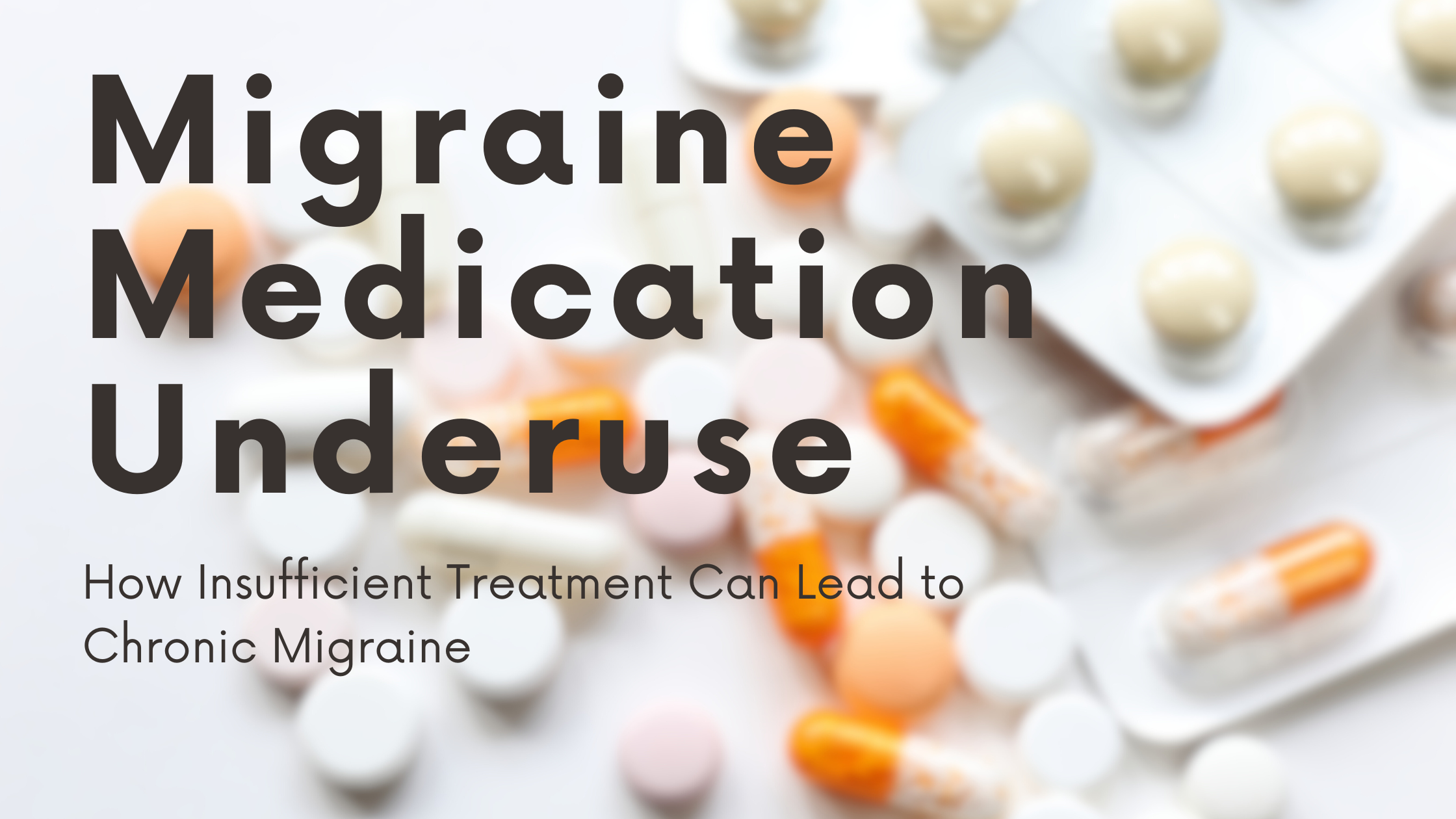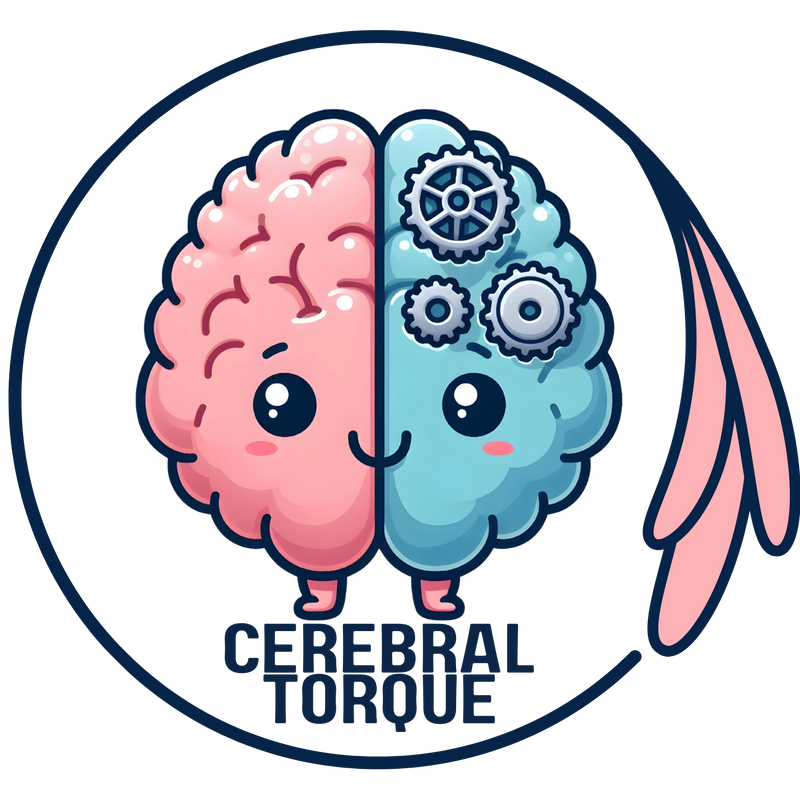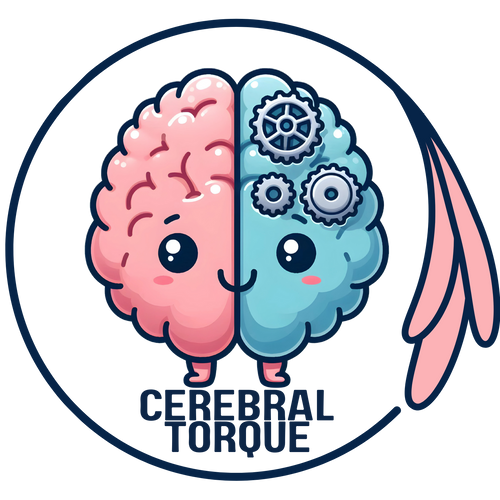Migraine Medication Underuse: How Insufficient Treatment Can Lead to Chronic Migraine
Posted on April 14 2024,

While effective acute and preventive migraine medications are available, many patients experience migraine progression and chronification due to insufficient, ineffective, or intolerable use of these treatments. This phenomenon, termed "medication underuse headache" (MUH), is a growing concern in the field of headache medicine. The paper, Medication “Underuse” Headache explains this phenomenon, its impact on migraine progression, and how optimal medication use could help prevent the development of chronic migraine disease.
The Dangers of Acute Migraine Medication Underuse
Ineffective acute treatment is a major contributor to migraine chronification. When patients use inappropriate medications for their pain intensity or discontinue treatment due to lack of efficacy or side effects, they are at increased risk of developing chronic migraine. Another factor is the timing of medication intake. Studies have shown that taking acute medications more than 60 minutes after the onset of a migraine attack or after the development of central sensitization and cutaneous allodynia significantly reduces treatment efficacy. To optimize acute treatment, it's crucial to take medication within 60 minutes of migraine onset and before allodynia develops, as this can lead to better pain relief and prevent the activation of the trigeminovascular pathway involved in migraine pathophysiology.
The Problem of Preventive Medication Underuse
Despite the availability of effective preventive medications, many patients who could benefit from these treatments are not receiving them. Studies have found that 38.8-73.9% of eligible patients are not prescribed preventive medications. Moreover, oral preventives have high discontinuation rates (71-83% at 12 months) due to lack of efficacy and adverse effects, leading to poor adherence. Patient dissatisfaction with preventive treatments is also high, with efficacy being the most important factor, followed by side effect profile. Addressing these issues and improving patient adherence to preventive medications is essential for reducing the risk of migraine progression.
Understanding the Pathophysiology of Migraine Progression
To effectively prevent migraine chronification, it's important to understand the underlying pathophysiological mechanisms. Prolonged inflammation and repetitive stimulation of the trigeminovascular ascending pathway are key factors by which medication underuse may perpetuate migraine progression. Insufficient acute treatment fails to halt the development of peripheral and central sensitization, leading to increased headache frequency and chronification. Similarly, inadequate preventive treatment fails to reduce the hyperexcitability of the trigeminovascular system and the dysfunctional descending pain modulation, further contributing to progression.
The Promise of Anti-CGRP mAbs
Anti-calcitonin gene-related peptide (CGRP) monoclonal antibodies (mAbs) have shown good efficacy and tolerability in clinical trials, with potential advantages over traditional oral preventives. Evidence also suggests that initiating anti-CGRP mAb treatment early, when monthly headache frequency is lower and before the development of significant central sensitization, may provide greater benefit in preventing chronification. Factors associated with better response to anti-CGRP agents include lower baseline headache frequency, fewer prior preventive treatment failures, and the absence of comorbid depression/anxiety.
Final Thoughts
Migraine medication underuse is a significant problem that can lead to the progression and chronification of migraine disease. By optimizing the use of acute and preventive medications and initiating effective preventives early, we may be able to prevent this debilitating transformation. Addressing medication underuse is a critical step in improving the lives of those affected by this disabling disorder.
Wed, Jan 14, 26
New Emergency Department Migraine Treatment Guidelines
The American Headache Society (AHS) has released its 2025 guideline update for the acute treatment of migraine in adults presenting to the emergency department. This update, published in Headache in...
Read MoreSun, Jan 04, 26
Long-Term Safety of Anti-CGRP Monoclonal Antibodies
A comprehensive meta-analysis of over 4,300 patients reveals that erenumab, galcanezumab, fremanezumab, and eptinezumab maintain good tolerability beyond 12 months. Only 3% of patients stopped treatment due to adverse events,...
Read MoreThu, Jan 01, 26
Alternate Nostril Breathing Protocol for Migraine
Alternate nostril breathing is a simple yogic technique that's showing real promise for migraine prevention. Unlike acute treatments, this practice builds nervous system resilience over time - making attacks less...
Read More


